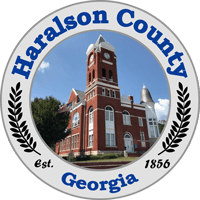Health Department
The Haraslon County Department of Public Health (DPH) is the lead agency in preventing disease, injury and disability; promoting health and well-being; and preparing for and responding to disasters from a health perspective. The Health Department provides services available to all residents regardless of age, race, religion, national origin, political belief, disability or sex. The health department is overseen by a local Board of Health appointed according to law.
Clinical services include immunizations, women's health and WIC (supplemental food program)and the Dental program. The health department charges only minimal fees for its services, and some services have adjusted fee scales based on ability to pay. They also accept Medicaid and Medicare.
WIC is a supplemental nutrition program for women, infants and children. The health departmenbt provides free benefits for eligible infants and children 1-5 years old, pregnant and postpartum women, and breastfeeding mothers. WIC benefits individuals and families in need by increasing access to healthy foods, providing breastfeeding support, promoting low-risk births, and offering cost-savings to health care. Learn more about the WIC program.
Public Health Services include:
Labs
Family Planning
Well Child Checks
STD Exams
HIV Testing
Pregnancy Medicaid
Nutrition Services
CPR Training
Car Seat Class
Hearing, Vision, Dental Exams
Pride Teen Driving Class
Women's Health Cancer Screening (Assistance with Pap Smears & Mammograms)
Many Other Public Health Services
For more than a century, the Georgia Department of Public Health (DPH), the 159 County Boards of Health, and the 18 District Health Directors have shared responsibility for Georgia’s public health functions, policies, programs and standards. Each partner plays an important role to serve the people of Georgia and achieve our common public health goals: to prevent disease, injury and disability; to promote health and well-being; and to prepare for and respond to disasters.
Boards of Health are made up of elected or appointed individuals from every walk of life who care about the public’s well-being. They function as the eyes and ears of their community, acting at the county level to serve local needs, examine resources, and advocate for public health programs. A board has several responsibilities, including:
- Adopting public health rules and regulations for the county
- Enforcing all laws pertaining to health
- Presenting and approving health budget to the county commission
- Providing policy guidance to the District Health Director
- Acting as a link to local government, community resources, and partners such as hospitals, health care providers, businesses and civic leaders
